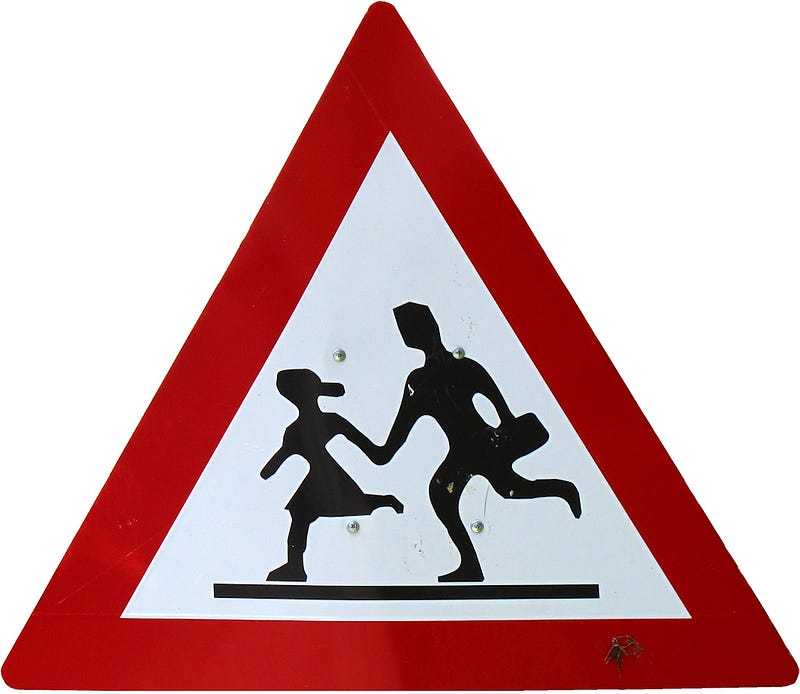If Covid-19 is still a problem, if there are other airborne diseases (like R.S.V. and influenza) that we need to be wary of, and if there will likely be more such illnesses in the decades ahead… what can we do?

We know that Long Covid is real, and has potentially drastic consequences. For instance, for “up to a year after a case of COVID-19, people may be at increased risk of developing a new heart-related problem, anything from blood clots and irregular heartbeats to a heart attack –- even if they initially seem to recover just fine” (Neergaard, 2023). We also know that repeat infections create an ever-increasing likelihood of severe consequences.

We also know that a “tri-demic” will be hitting us hard again this winter.
“CDC Director Mandy Cohen told NBC News this week the agency is preparing for another “tri-demic” this winter — with Covid, influenza, and another respiratory virus, RSV, circulating widely — that could challenge the US health care system. “We need to make sure the American people understand all three and what they can do to protect themselves,” Cohen said” (Scott, 2023). These other illnesses come with their own host of complications, and should not be ignored just because Covid-19 is a novel virus.
With infections trending upwards over the last four weeks (Mandavilli, 2023), public health experts believe that there are still plenty of reasons to be concerned. Katelyn Jetelina, who writes the Your Local Epidemiologist newsletter, had this to say:
“We are in a very different place, but Covid is still a thing. … I think we do the public a disservice by saying that it’s over and let’s move on, because it is going to be disruptive this winter, and it will cause a number of people to die,” she added. “That’s just not acceptable to the public health world, especially since it’s preventable.” (Mandavilli, 2023)
We need governments that prioritize human life, and ecosystem homeostasis, over all other concerns. But, while we work toward a different type of social structure and priority, what can we do?
Quite a lot, actually.
First: find a way to get involved in your local political scene. Personally involved, not just through an online petition or a donation. Who is responsible for Covid policies in your workplace, in your library, in your hometown, or in your favorite shops? Who in those organizations might be willing to work toward positive changes? Can you communicate with them, effectively, to build a network of allyship for positive change?
Change is a matter of widespread solidarity, so we need to come at this crisis from the mindset of togetherness, not “otherness.”
Secondly, we must follow best practices regarding health and safety hygiene.

Effects of masking
Are we going to be stuck masking up forever? The short answer is: “We always should have been masking up during peak flu seasons” (Masking and Social Distancing During Pandemic Stopped Spread of Flu and RSV During 2020 Cold and Flu Season, 2021.).
Masks dramatically decrease the likelihood of catching or spreading Covid-19 (or most other airborne illnesses (Walkinshaw & Horstman, 2023)). Any masks are better than nothing, but high-quality masks made from plastic have an innate static charge that adds to their effectiveness. Oh, and no, breathing through masks doesn’t cause problems for the vast majority of wearers (CDC, 2020; CDC, 2021).
We know that masks are effective at reducing the transmission of disease (Acosta, 2023). We also know that masking up doesn’t carry any risks for the majority of the population (unless you have severe medical conditions that make breathing difficult, or are exercising at an absurdly high level, it’s not something to be concerned with) (CDC, 2020; CDC, 2021).
In a review of school conditions in Switzerland, masks were shown to be the most effective method of reducing spread (Banholzer et al., 2023).
Air purification
The CDC has set an air exchange of five full exchanges per hour as a federal baseline to reduce exposure to viral contamination (Goodman, 2023). However, research shows that both the placement of the air purification system (if not a built-in HVAC) as well as other factors, like the number of people in a room, must be taken into account.
This research suggests that a rate of 6–12 exchanges per hour is ideal for reducing exposure to all airborne illnesses, and that placement of air purifiers closest to the source of exposure can reduce the risk significantly even when the source is unmasked (Srikrishna, 2022).
A 2023 review of numerous papers found that the “use of natural ventilation or a combination of mechanical and natural ventilations was found to be highly effective” at reducing the spread of the disease (Saeedi et al., 2023).
- Ensure that you are working and living in well-ventilated spaces. Your employer should install strong HVAC systems with HEPA or better purification. Failing that, we know that placing portable HEPA air filters strategically limits the spread of airborn infection significantly (He et al., 2021; Walkinshaw & Horstman, 2023).
- The CDC guidelines on air filtration should be required reading.
- I found this handy guide from the Rhode Island Department of Public Health that provides specific guidelines for proper ventilation (extra important to read this if you work in a classroom or other setting where people congregate for long periods of time).
All of this stacks up with other research out there, pointing to an insoluble fact: clean air is one of the most fundamentally important things for combatting the spread of illnesses like Covid, the flu, and RSV.
Hand-washing
While this is not a major transmission vector, there have been reports of Covid contraction through the eyes. Washing your hands is especially vital in conjunction with masking (any time you touch your mask, sanitize or wash your hands!).

TLDR
- Source-control is the most effective method of stopping the spread of disease (if you are sick, don’t take your mask off around other people!).
- Following this, general masking in all public settings, especially when indoors, is the next best thing. High-quality N-95 (or the generally more comfortable KF-94) (Lewis, 2021), are your best bet, though multi-layered cloth masks are better than nothing at all.
- Air exchange is a vital component of avoiding transmission. Air must be cycled through a high-efficiency filter (and not simply moved throughout a series of rooms).
- HVAC air purification that is fed through MERV-13 or HEPA filtration is one of the best options, but few buildings have implemented this.
- Localized portable air purifiers are effective at combatting spread of infection, but you need to pay attention to their manufacturer’s posted rate of air change per hour. You will likely need two, even for a relatively small space, in order to ensure that source control is provided.
- Washing your hands and strong general hygiene is an essential component, even if this isn’t the main vector of transmission.
- Limit exposure: This is probably the most difficult thing to build a habit for. What it essentially boils down to, though, is an intelligent calculus between these factors:
your psychological needs,
your community transmission rate,
the type of gathering you’re attending,
mitigating measures taken.
Talk to your family and talk to your friends. Post about it. Wear your mask proudly while being active in your social group and community. Model good behavior without trying to “convince” anyone of anything.
Just go out there and be the change we need in the world because, at this point, we’re all on the front line.
Hi there! I’m Odin Halvorson, a librarian, independent scholar, film fanatic, fiction author, and tech enthusiast. If you like my work and want to support me, please consider subscribing!
References
- Acosta, C. M. (2023, February 10). Are there places you should still mask in, forever? Three experts weigh in. NPR. https://www.npr.org/2023/02/10/1155516547/are-there-places-you-should-still-mask-in-forever-three-experts-weigh-in
- Banholzer, N., Zürcher, K., Jent, P., Bittel, P., Furrer, L., Egger, M., Hascher, T., & Fenner, L. (2023). SARS-CoV-2 transmission with and without mask wearing or air cleaners in schools in Switzerland: A modeling study of epidemiological, environmental, and molecular data. PLOS Medicine, 20(5), e1004226. https://doi.org/10.1371/journal.pmed.1004226
- CDC. (2020, February 11). Science Brief: Community Use of Masks to Control the Spread of SARS-CoV-2. Centers for Disease Control and Prevention. https://www.cdc.gov/coronavirus/2019-ncov/science/science-briefs/masking-science-sars-cov2.html
- CDC. (2021). Coronavirus Disease 2019 (COVID-19). Centers for Disease Control and Prevention. https://www.cdc.gov/coronavirus/2019-ncov/science/science-briefs/masking-science-sars-cov2.html
- CDC. (2023, April 13). Improving Ventilation in Your Home. Centers for Disease Control and Prevention. https://www.cdc.gov/coronavirus/2019-ncov/prevent-getting-sick/improving-ventilation-home.html
- He, R. (何瑞辰), Liu, W. (刘婉娇), Elson, J., Vogt, R., Maranville, C., & Hong, J. (洪家荣). (2021). Airborne transmission of COVID-19 and mitigation using box fan air cleaners in a poorly ventilated classroom. Physics of Fluids, 33(5), 057107. https://doi.org/10.1063/5.0050058
- Neergaard, L. (2023, August 10). COVID-19 took a toll on heart health and doctors are still grappling with how to help. AP News. https://apnews.com/article/covid19-long-covid-heart-3dd8f26c663e96bffcc2980830626153
- Lewis, T. (2021). Why We Need to Upgrade Our Face Masks—and Where to Get Them. Scientific American. https://www.scientificamerican.com/article/why-we-need-to-upgrade-our-face-masks-and-where-to-get-them/
- Mandavilli, A. (2023, August 3). Amid Signs of a Covid Uptick, Researchers Brace for the ‘New Normal.’ New York Times. https://www.nytimes.com/2023/08/02/health/covid-rise.html
- Masking and Social Distancing During Pandemic Stopped Spread of Flu and RSV During 2020 Cold and Flu Season. (2021). https://www.aap.org/en/news-room/news-releases/aap/2021/masking-and-social-distancing-during-pandemic-stopped-spread-of-flu-and-rsv-during-2020-cold-and-flu-season/
- Saeedi, R., Ahmadi, E., Hassanvand, M. S., Mohasel, M. A., Yousefzadeh, S., & Safari, M. (2023). Implemented indoor airborne transmission mitigation strategies during COVID-19: A systematic review. Journal of Environmental Health Science and Engineering, 21(1), 11–20. https://doi.org/10.1007/s40201-023-00847-0
- Scott. (2023, July 28). Covid-19 is seeing a mild summer bump. Is it time to worry again? — Vox. https://www.vox.com/policy/2023/7/28/23808360/covid-19-2023-summer-cases-vaccines-boosters
- Srikrishna, D. (2022). Long-term experience with rapid air filtration (6 to 15 air changes per hour) in a K-5 elementary school using HEPA and Do-It-Yourself (DIY) air purifiers during the COVID-19 pandemic [Preprint]. Infectious Diseases (except HIV/AIDS). https://doi.org/10.1101/2022.11.05.22281734
- Walkinshaw, D. S., & Horstman, R. H. (2023). Covid 19 and beyond: A procedure for HVAC systems to address infectious aerosol illness transmission. Frontiers in Built Environment, 9. https://www.frontiersin.org/articles/10.3389/fbuil.2023.999126

